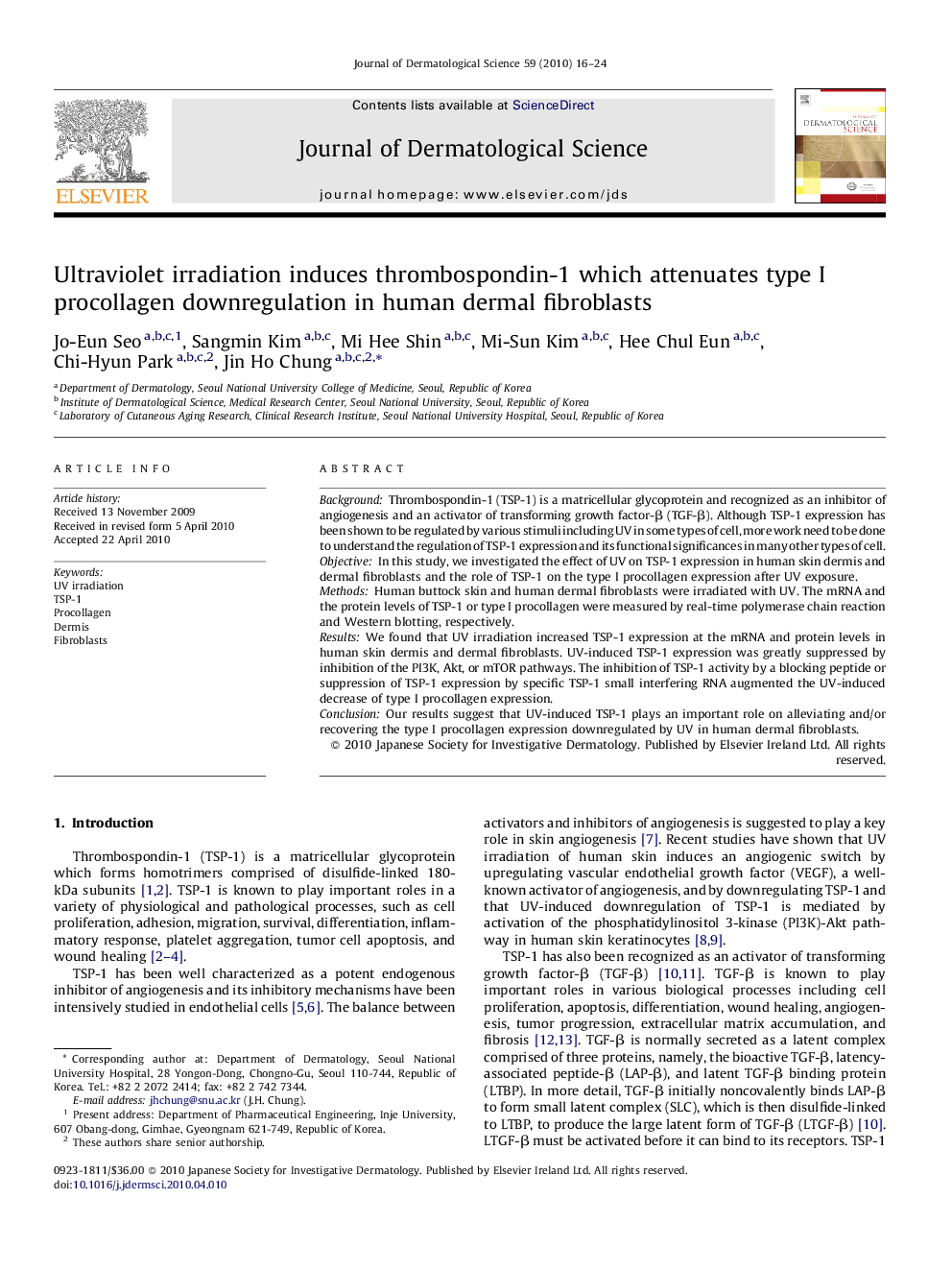| Article ID | Journal | Published Year | Pages | File Type |
|---|---|---|---|---|
| 3213781 | Journal of Dermatological Science | 2010 | 9 Pages |
BackgroundThrombospondin-1 (TSP-1) is a matricellular glycoprotein and recognized as an inhibitor of angiogenesis and an activator of transforming growth factor-β (TGF-β). Although TSP-1 expression has been shown to be regulated by various stimuli including UV in some types of cell, more work need to be done to understand the regulation of TSP-1 expression and its functional significances in many other types of cell.ObjectiveIn this study, we investigated the effect of UV on TSP-1 expression in human skin dermis and dermal fibroblasts and the role of TSP-1 on the type I procollagen expression after UV exposure.MethodsHuman buttock skin and human dermal fibroblasts were irradiated with UV. The mRNA and the protein levels of TSP-1 or type I procollagen were measured by real-time polymerase chain reaction and Western blotting, respectively.ResultsWe found that UV irradiation increased TSP-1 expression at the mRNA and protein levels in human skin dermis and dermal fibroblasts. UV-induced TSP-1 expression was greatly suppressed by inhibition of the PI3K, Akt, or mTOR pathways. The inhibition of TSP-1 activity by a blocking peptide or suppression of TSP-1 expression by specific TSP-1 small interfering RNA augmented the UV-induced decrease of type I procollagen expression.ConclusionOur results suggest that UV-induced TSP-1 plays an important role on alleviating and/or recovering the type I procollagen expression downregulated by UV in human dermal fibroblasts.
